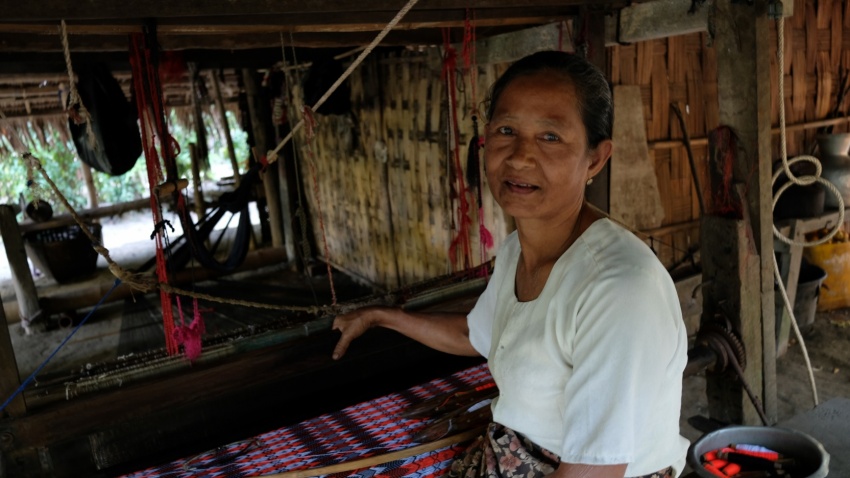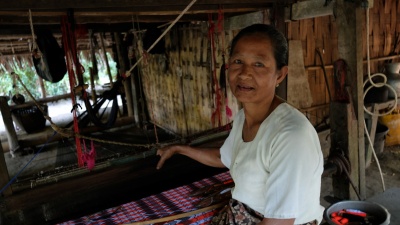
19/ Feb/ 2018
Daw Toe Ma Sein, 56, is a weaver in the small village of Kyauk Tan Chay, a few kilometres north of the town of Sittwe, capital of Myanmar’s Rakhine state. In 2016, she was among 670 people who received cash grants to support their livelihoods, part of a Myanmar Red Cross Society programme helping communities affected by flooding, violence and population movement in Rakhine. One year on, her investment is bearing fruit.  “Before I received the grant, my income was very low and I couldn’t afford enough to eat. I ate twice a day but I couldn’t afford to buy any meat. “My husband died 20 years ago, leaving me with six children to look after. Five of them have moved away now, but none of them earn enough to support me. “When I heard the Red Cross were planning these grants, I asked my friend how I could apply. I wanted to get some support to improve my weaving business. “I received around 200 US dollars (197 Swiss francs or 167 euro) and used the money to buy more weaving equipment, thread and other things. “Before I could only make small pieces of fabric. They sold for a couple of dollars per piece and I barely made any profit. “Now, with the new equipment and materials I bought with the Red Cross money, I can make a full longyi (a tube of cloth worn by women and men). “The longyis sell for around 10 dollars apiece, so I can make a lot more money. “The Red Cross support changed my life. Before I really struggled, but now I can save a little money each month which I put aside in case I need it. “A few months ago, I got sick and had to go to the hospital. I could use the money I had saved to pay the hospital bills which were about 300 dollars. If I hadn’t had that money I wouldn’t have been able to afford to go to hospital and I don’t know what would have happened to me. “Now I am trying to save money again, but I can afford enough to eat, and I can have tea and eat meat when I want. Life is good.”
“Before I received the grant, my income was very low and I couldn’t afford enough to eat. I ate twice a day but I couldn’t afford to buy any meat. “My husband died 20 years ago, leaving me with six children to look after. Five of them have moved away now, but none of them earn enough to support me. “When I heard the Red Cross were planning these grants, I asked my friend how I could apply. I wanted to get some support to improve my weaving business. “I received around 200 US dollars (197 Swiss francs or 167 euro) and used the money to buy more weaving equipment, thread and other things. “Before I could only make small pieces of fabric. They sold for a couple of dollars per piece and I barely made any profit. “Now, with the new equipment and materials I bought with the Red Cross money, I can make a full longyi (a tube of cloth worn by women and men). “The longyis sell for around 10 dollars apiece, so I can make a lot more money. “The Red Cross support changed my life. Before I really struggled, but now I can save a little money each month which I put aside in case I need it. “A few months ago, I got sick and had to go to the hospital. I could use the money I had saved to pay the hospital bills which were about 300 dollars. If I hadn’t had that money I wouldn’t have been able to afford to go to hospital and I don’t know what would have happened to me. “Now I am trying to save money again, but I can afford enough to eat, and I can have tea and eat meat when I want. Life is good.”